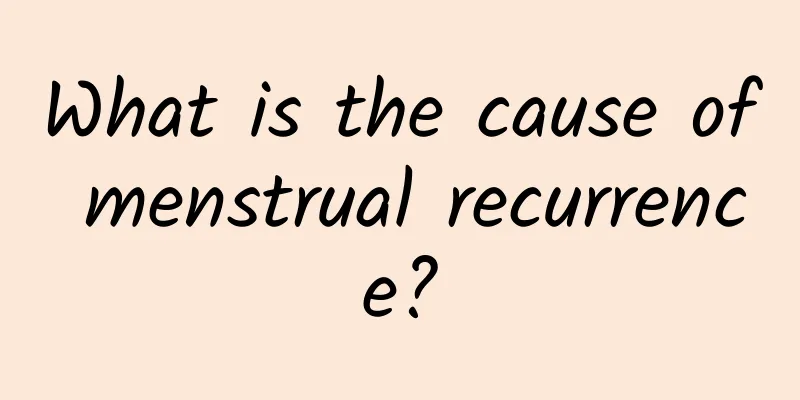What is the cause of menstrual recurrence?

|
The term menstrual recurrence may sound a bit mysterious, but it actually refers to the phenomenon that women's menstruation returns after menopause. Does it sound a bit weird? But it does happen in some cases. Usually, after menopause, women's ovarian function gradually declines and menstruation stops. However, some women experience a brief return of menstruation after menopause, which can be confusing or even worrying. There are many reasons for the return of menstruation, the most common of which is the fluctuation of hormone levels. After menopause, the estrogen level in the body will drop significantly, but sometimes due to certain physiological or pathological factors, the estrogen level may temporarily increase, causing the endometrium to thicken, thus triggering bleeding. Certain health conditions such as endometrial hyperplasia, uterine fibroids or polyps may also cause the return of menstruation. For postmenopausal women, this situation needs to be taken seriously because in a few cases, the return of menstruation may be a sign of certain serious health problems, such as endometrial cancer. If you experience a return of your period, it is recommended that you see your doctor as soon as possible for a detailed examination. This is not only to rule out potential health risks, but also to get appropriate treatment and advice. The doctor may recommend an ultrasound, endometrial biopsy, or other related tests to determine the cause of the bleeding. Through these tests, you can better understand your health status and take appropriate measures. Maintaining a healthy lifestyle is also important for preventing and managing menstrual bleeding. A balanced diet, adequate exercise, adequate sleep, and a good mental state can help you maintain your body's balance. Regular gynecological examinations are also key to maintaining your health. After all, early detection and early treatment are always better than remedial measures. Although the return of menstruation may sound a little worrying, it is not always a sign of a serious problem. By understanding the causes and taking the right measures, you can deal with it calmly. Maintaining a positive attitude and healthy living habits can better enjoy every day of life. I hope this information can help you better understand the return of menstruation. I wish every female friend can have a healthy body and a good life. |
<<: How to use medicine for vulvar itching
>>: What ointment to use for vulvar leukoplakia
Recommend
How to prevent cervical warts
How to avoid cervical warts? Cervical warts are a...
What are the best treatments for cervicitis?
What are the best treatments for cervicitis? Cerv...
What is laparoscopic uterine fibroid surgery? Indications for laparoscopic uterine fibroid surgery
1. Historical development of laparoscopic technol...
Abnormal leucorrhea, jelly-like and with a strange smell
Abnormal leucorrhea that is jelly-like and has an...
What causes irregular menstruation in women? There are four ways to prevent irregular menstruation in women
Menstruation is an important physiological charac...
Symptoms of pelvic inflammatory disease
Pelvic inflammatory disease is a common gynecolog...
Rope skipping can reduce appetite, lose weight and burn fat
Recently, researchers from Taiwan's Yang Ming...
Can I get pregnant if mycoplasma is positive?
It is possible to get pregnant if the test result...
How to treat cervical mucositis
Cervical mucositis is also called endocervical ca...
Protruding belly and skyrocketing weight, beware of false hunger and learn 6 ways to overcome it
Are you always troubled by the circles of fat on ...
What are the symptoms of amenorrhea in women?
Amenorrhea is a very common amenorrhea, which can...
What food can cure uterine fibroids?
What ingredients can repair uterine fibroids? Wha...
How do you know if pelvic effusion is serious?
Whether the pelvic effusion is serious needs to b...
Brief analysis of factors related to the causes of cervical erosion
Medically, the causes of cervical erosion are rel...
Which hospital should I go to for treatment of uterine effusion?
"Which hospital should I go to for treatment...









